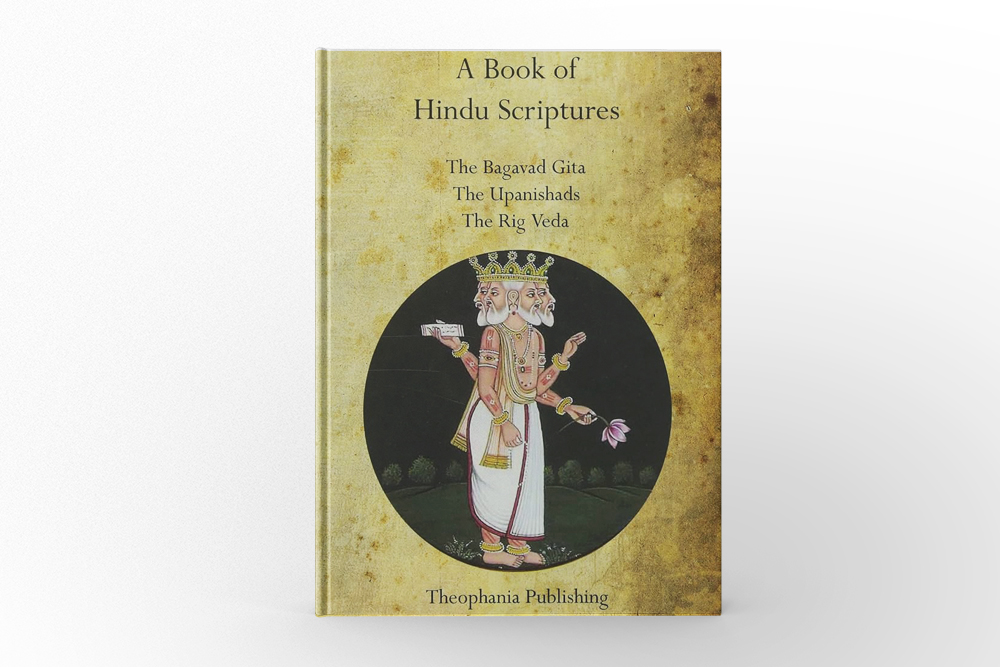“The Vedas” are a collection of ancient Hindu scriptures that form the foundation of Hindu religious knowledge and practice. These texts, composed in Vedic Sanskrit, are among the oldest sacred writings in the world and have profoundly influenced the spiritual and cultural landscape of India. In this article, we will delve into the key themes, insights, and contributions of these revered texts.
Author’s Background
The Vedas are not attributed to a single author but are considered to be divinely revealed to ancient sages known as rishis. These sages are believed to have received the hymns and mantras through deep meditation and spiritual insight. The Vedas were orally transmitted for centuries before being written down, ensuring their preservation and continuity. The compilation of the Vedas is traditionally credited to Vyasa Krishna Dwaipayana, who organized the hymns into four distinct collections.
In-Depth Summary
“The Vedas” consist of four main texts: the Rigveda, the Samaveda, the Yajurveda, and the Atharvaveda. Each Veda serves a unique purpose and contains different types of content, ranging from hymns and rituals to philosophical teachings.
- Rigveda: The Rigveda is the oldest and most important of the four Vedas. It consists of 1,028 hymns (suktas) dedicated to various deities, such as Agni (the fire god), Indra (the king of gods), and Soma (the sacred plant). These hymns are composed in praise of the gods and are used in various rituals and ceremonies. The Rigveda also contains cosmological and philosophical hymns that explore the nature of the universe and the origins of creation.
- Samaveda: The Samaveda is primarily a collection of melodies and chants derived from the Rigveda. It is used in the performance of sacred rituals, particularly the Soma sacrifice. The hymns of the Samaveda are meant to be sung by priests, and their musical quality is emphasized. This Veda highlights the importance of sound and music in religious practices.
- Yajurveda: The Yajurveda is a compilation of prose mantras and sacrificial formulas used in rituals. It is divided into two main sections: the Shukla (White) Yajurveda and the Krishna (Black) Yajurveda. The Yajurveda provides detailed instructions for conducting various ceremonies, including the preparation of offerings and the recitation of specific mantras. It serves as a practical guide for priests performing Vedic rituals.
- Atharvaveda: The Atharvaveda is distinct from the other three Vedas in its content and style. It contains hymns, spells, and incantations for everyday life, addressing issues such as health, prosperity, and protection from evil forces. The Atharvaveda reflects the concerns of ordinary people and includes practical knowledge related to medicine, agriculture, and domestic life.
Each Veda is further divided into four parts: the Samhitas (hymns), the Brahmanas (ritualistic texts), the Aranyakas (theological discussions), and the Upanishads (philosophical teachings). The Samhitas form the core of the Vedas, while the Brahmanas provide explanations and instructions for rituals. The Aranyakas serve as a bridge between the ritualistic and philosophical aspects of the Vedas, and the Upanishads delve into profound metaphysical concepts and the nature of reality.
Themes and Insights
One of the central themes of “The Vedas” is the concept of Rta, the cosmic order that governs the universe. The Vedic hymns emphasize the importance of maintaining harmony and balance in the world through righteous actions and adherence to divine laws. This theme underscores the interconnectedness of all beings and the need for ethical conduct.
Another key theme is the worship of deities and the performance of rituals. The Vedas contain detailed instructions for various ceremonies, highlighting the significance of rituals in connecting with the divine and seeking blessings. The hymns often invoke the gods for protection, prosperity, and guidance, reflecting the deep spiritual devotion of the ancient Hindus.
The Vedas also explore philosophical and metaphysical concepts, particularly in the Upanishads. These texts delve into questions about the nature of the self (Atman), the ultimate reality (Brahman), and the relationship between the individual soul and the cosmos. The Upanishads emphasize the pursuit of knowledge and self-realization as the path to liberation (moksha).
Recommendation
“The Vedas” are essential reading for anyone interested in ancient Hindu scriptures, spirituality, and philosophy. These texts offer a profound and comprehensive understanding of Hindu beliefs and practices, providing valuable insights into the spiritual heritage of India. Whether you are a scholar, a spiritual seeker, or simply curious about ancient wisdom, the Vedas offer a rich and rewarding exploration of timeless truths.
Impact and Legacy
Since their composition, “The Vedas” have had a profound impact on Hinduism and Indian culture. They have shaped religious practices, social customs, and philosophical thought for millennia. The Vedas are considered the highest authority in Hinduism, and their teachings continue to influence contemporary Hindu beliefs and rituals.
The Vedas have also inspired numerous commentaries and interpretations by scholars and philosophers throughout history. Figures such as Adi Shankaracharya and Swami Vivekananda have drawn upon Vedic teachings to articulate their own philosophical insights and spiritual practices. The Vedas’ emphasis on knowledge, ethics, and the pursuit of truth has resonated with people across cultures and continues to inspire spiritual seekers worldwide.
Conclusion
In conclusion, “The Vedas” are a remarkable and enduring testament to the spiritual and intellectual achievements of ancient India. These sacred texts offer a comprehensive guide to understanding the cosmos, the divine, and the human experience. Whether you are exploring the hymns of the Rigveda, the melodies of the Samaveda, the rituals of the Yajurveda, or the practical wisdom of the Atharvaveda, the Vedas provide a rich and enlightening journey into the heart of Hindu spirituality.
Personal Reflections
Reading “The Vedas” is not just an intellectual pursuit but a deeply spiritual experience. The hymns and mantras resonate with timeless wisdom and offer a glimpse into the profound insights of the ancient sages. This book reminds us that the quest for knowledge and the desire to understand the mysteries of existence are universal themes that transcend time and culture.
